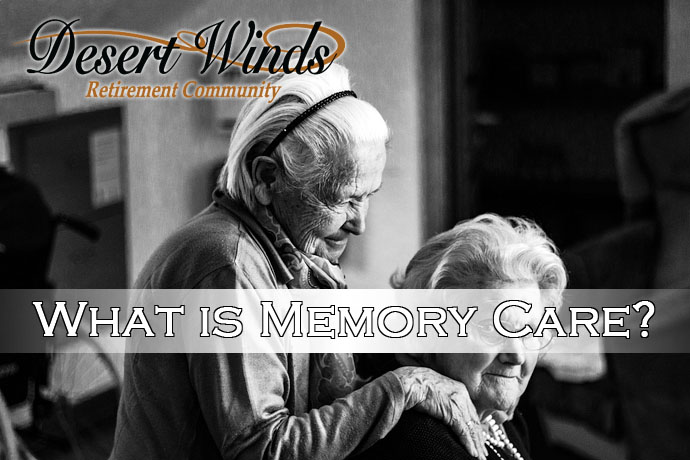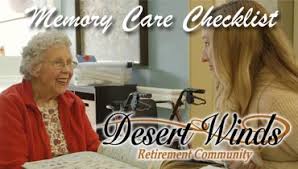What Is ELEMENTS Memory Support?
ELEMENTS is a signature memory support (or memory care) program offered by SLS Communities, including at Desert Winds in Peoria, Arizona. Senior Living Services+1 It’s designed for older adults living with memory loss — whether due to Alzheimer’s disease or other forms of dementia — and aims to provide both safety and quality of life, with both clinical care and supportive, social, emotional, and environmental components. Senior Living Services+1
ELEMENTS is actually an acronym; each letter represents a guiding principle of the program:
| Letter | Principle And Practice | |
|---|---|---|
| Engaged | Dynamic activities & personalized engagement — using meaningful activities to stimulate residents mentally, socially, and emotionally Senior Living Services+1 | |
| Lifestyle | Community involvement & lifelong learning — encouraging residents to continue learning, exploring interests, engaging with the community around them Desert Winds Retirement Community+1 | |
| Empowered | Supportive environment & individual choice — recognizing autonomy as much as possible, giving residents choices in daily living Desert Winds Retirement Community+1 | |
| Moments | Encouragement with a strength-based approach — focusing on what the person can do, not just what they’ve lost; celebrating small victories and moments of connection Desert Winds Retirement Community+1 | |
| Enhanced | Secured environment & accessible design — safety features, secure areas, layouts that reduce confusion or risk, built for ease of movement, etc. Senior Living Services+1 | |
| Neighborhood | Vibrant social spaces — having areas that feel communal, encouraging social interaction, giving opportunities for folks to feel part of a community rather than isolated Desert Winds Retirement Community+1 | |
| Trusted | Open communications & safe practices — transparent communication with families, trusted care, staff trained to handle the challenges of memory loss in a professional, compassionate way Senior Living Services+1 | |
| Support | Nationally certified dementia care staff — caregivers are trained / certified in dementia care; ongoing training; expertise to respond to changing needs. Senior Living Services+1 |
In addition to safety and care, the ELEMENTS program emphasizes enriched experiences: tailored dining, meaningful activities, personal choice, etc. At Desert Winds, for example, dining is presented not just as fuel, but as part of quality of life — with fresh ingredients, menus adapted to residents’ preferences and nutritional needs, and an inviting environment. Desert Winds Retirement Community
Why ELEMENTS is Helpful
ELEMENTS Memory Support provides multiple benefits for both residents and their families. Here are some of the key advantages:
-
Safety and Security
Memory loss often brings risks: getting lost (wandering), confusion, unsafe use of appliances, etc. The “Enhanced” (secured environment) part of ELEMENTS addresses this — via secure layouts, monitoring, accessible design, etc. Families often feel more at ease. Senior Living Services+1 -
Person-Centered Care
Rather than a one-size-fits-all routine, ELEMENTS looks at each individual’s history, preferences, capabilities. This empowers residents, preserving dignity and identity. For instance, the strength-based approach honors what residents can do, rather than repeatedly focusing on losses. Senior Living Services+1 -
Cognitive and Emotional Engagement
Memory support programs must address more than physical safety — emotional well-being is critical. ELEMENTS provides dynamic activities, social interaction, mental stimulation, and opportunities for residents to connect, which can slow decline, improve mood, reduce feelings of isolation. Desert Winds Retirement Community+1 -
Quality of Life Improvements
The focus on dining, environment, social neighborhood, meaningful moments all help make daily living more enjoyable. Pleasant meals, friendships, familiar surroundings, personal choices contribute to better overall satisfaction. Desert Winds Retirement Community+1 -
Support for Families
Families of people with memory loss often bear stress: worry about safety, about declining abilities, etc. A program like ELEMENTS offers transparency, trained staff, and a structure that can relieve some of that burden. Also, communication and trusted practices help families stay involved and informed. Senior Living Services+1
Who Elements Memory Support is a Good Choice For
ELEMENTS is not right for every senior or every situation, but it fits very well in many cases. Here are the kinds of people (and families) who tend to benefit from this type of program, and situations in which it may make sense:
-
Individuals with mild to moderate memory loss — Early to middle stages of Alzheimer’s or other dementias, where there still is capacity for engagement, where environments, activities, and support can significantly help maintain functioning.
-
People who are unsafe living alone — If someone wanders, forgets medications, leaves stoves on, etc., then a secure environment with trained staff is safer.
-
Those who need help with daily living — Even if not requiring full nursing care, people who struggle with daily tasks (bathing, dressing, meal prep) may benefit from a memory-support community.
-
Families seeking more than just physical safety — If maintaining identity, personal dignity, social interaction, emotional well-being are priorities, ELEMENTS is strong. It’s especially useful for families who want an approach that is holistic, compassionate, and gives choice rather than rigid structure.
-
When environment matters — Design, layout, social spaces, dining, accessible design matter for quality of life. ELEMENTS seeks to address those, not just medical or custodial care.
-
When staff expertise and consistency are important — Certified staff trained in dementia care, stable care teams, attention to changing needs. ELEMENTS has this built in. Senior Living Services+1
Considerations / What to Check
To decide if ELEMENTS at Desert Winds (or any facility) is truly right, there are some things to review / ask about:
-
How advanced is the resident’s memory loss? If very advanced, more intensive medical or nursing care might be needed.
-
The cost: memory support programs tend to cost more than basic assisted living because of higher staffing, specialized features, and security.
-
Staff turnover: high turnover can disrupt continuity of care.
-
The physical layout: how secure is “secured environment”; how confusing might the layout be for someone with dementia.
-
Quality of food and variety, activity schedule, resident to staff ratios.
-
Communication: how well does staff communicate with families; how is individual resident preference honored.
Is It Right For You Or Your Loved One?
ELEMENTS Memory Support at Desert Winds (and in SLS Communities generally) offers an integrated, holistic care program designed for older adults living with memory loss. It combines safety and security with dignity, personal choice, engaging activities, and an environment built to reduce confusion and promote connection. For many seniors and their families, it represents a strong balance of care and quality of life — especially for those in the earlier to middle stages of dementia, or for those who need help with daily living but still want an environment that supports independence, community, and identity.
Memory Care At Desert Winds Retirement In Peoria, Arizona
If you are searching for a memory care facility in Peoria, Arizona, Desert Winds Retirement Community is the facility for you! Travel over to our memory care page to see pictures find out more about our facility, amenities, floor plans and more.
More Articles About Senior Living
- Benefits Of Independent Living For Seniors
- Can I Retire At 60 With 500K
- Lewy Body Dementia Vs Alzheimer’s
- Top 5 Best Dog Breeds For Seniors
- Why Retire In Arizona?
- How To Save For Retirement Without A 401k
- 30 Quotations About Getting Old
- Golf Exercises For Seniors
- Best Cities To Retire In Arizona
- When Might Be The Best Time To Start Saving For Retirement?
- How Much Does a Retirement Home Cost?
- How Much Does In-Home Care Cost?
- How Much Does a Nursing Home Cost?
- How Much Does Memory Care Cost?
- How Much Does Independent Living Cost?
- How Much Does Retirement Cost?
- How Much Does Assisted Living Cost?
- What Age Can You Stop Filing Income Taxes?
- What To Write In A Retirement Card Continued – 110 Quotes
- How Much Does Assisted Living Cost In Peoria, Arizona?
- Enjoyable Activities for Seniors
- Happy Retirement Quotes
- Senior Living Peoria
- Common Elderly Health Issues
- What is Arthritis?
- What Are The Benefits Of Assisted Living?
- What is Independent Living?
- Assisted Living Checklist: What To Ask & What To Look For
- Independent Living Checklist: What To Ask & What To Look For
- Find Memory Care Facilities In Arizona
- Best Places To Retire In Peoria Arizona
- How To Look Younger At Age 50+
- Restarting Work After Early Retirement
- Things To Do In Peoria AZ Outside Of The Retirement Home
- Checklist for Moving Into A Peoria Assisted Living Facility
- Help With Choosing Assisted Living Communities In Peoria, AZ
- 38 States That Don’t Tax Social Security Benefits 2016






